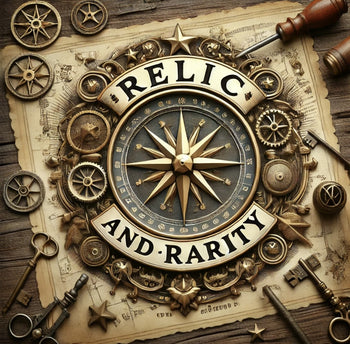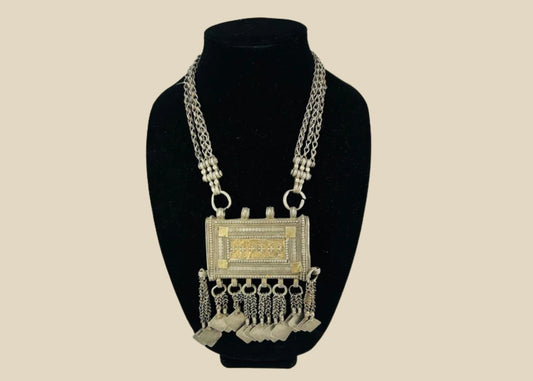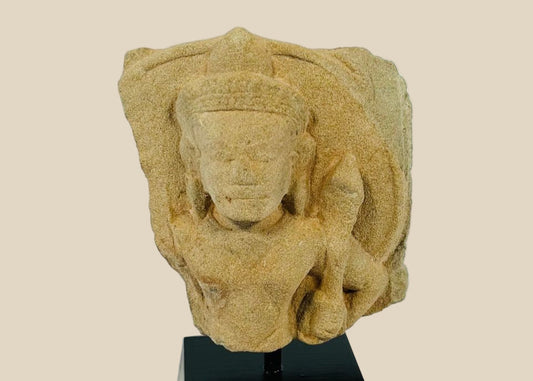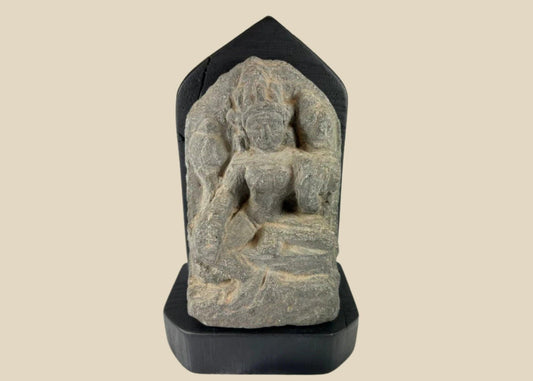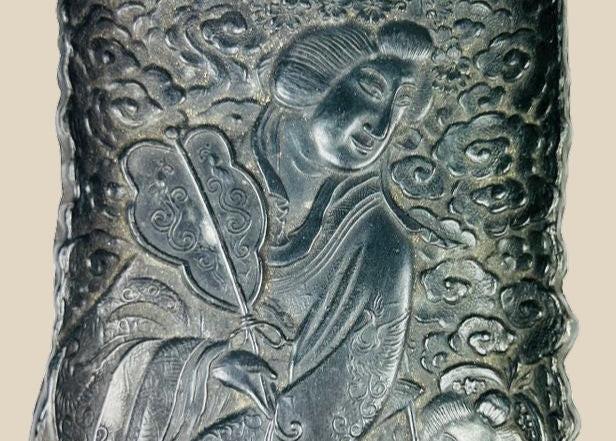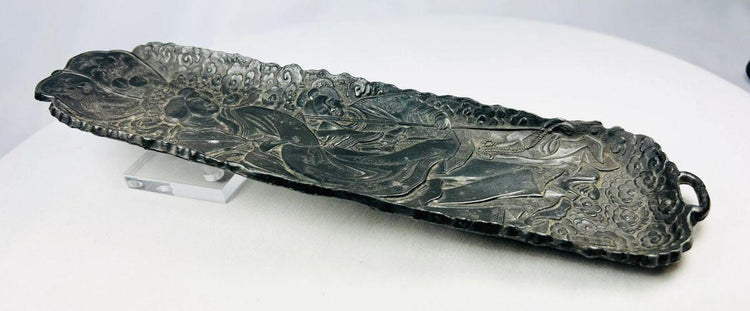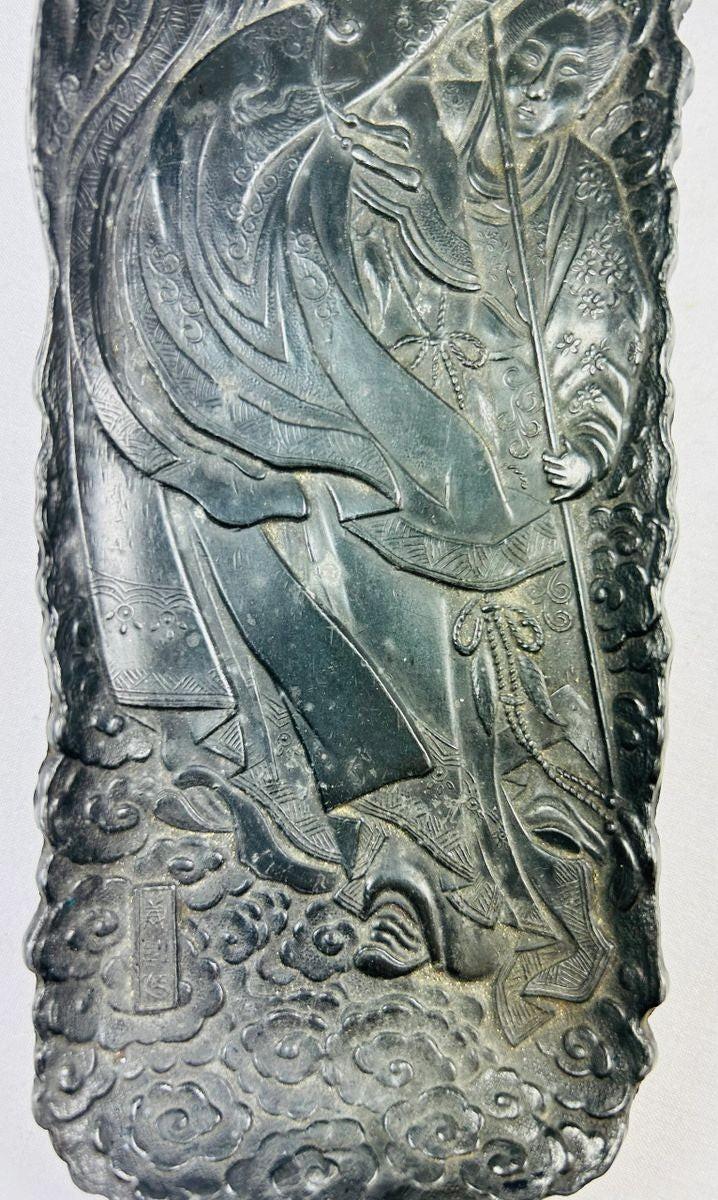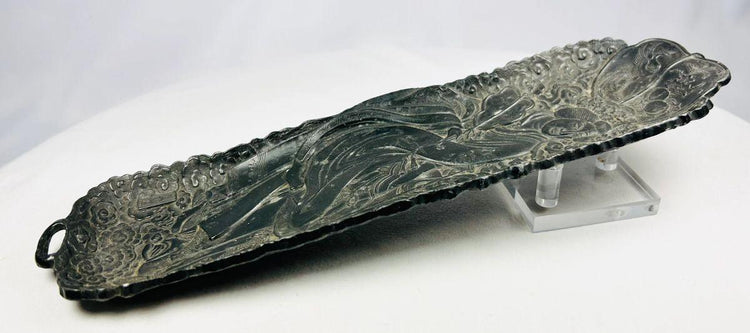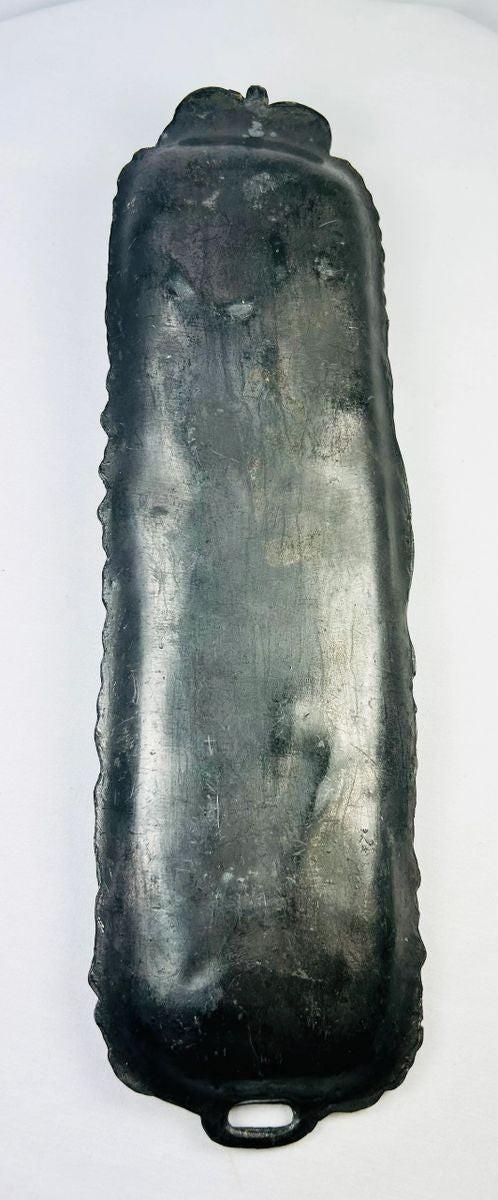Qing Dynasty Scholar’s Brush Tray | Pewter/Lead-Tin Alloy with Daoist Immortals & Cloud Motifs | 18th–Early 19th Century
Description
More
Less
Historical Context & Origin
Region: China
Material: Cast metal (likely pewter or a lead-tin alloy)
Period: Qing Dynasty, 18th to early 19th Century
Description
This elongated Qing Dynasty scholar’s brush or ink tray is finely cast in relief, featuring celestial figures—likely Daoist immortals—surrounded by swirling cloud motifs. The figures are depicted in flowing robes, bearing ceremonial staffs and fans, symbolizing divine presence, blessings, and longevity. The rectangular form is enhanced with scalloped edges and gently upturned handles, combining both functionality and elegance. Such trays were used within scholar’s studios to hold brushes, seals, or ink, while also serving as decorative statements of cultural refinement.
Features
- Deeply cast with detailed relief of celestial figures and cloud motifs
- Stylized scalloped border with integrated handles
- Possible maker’s or artist’s seal mark
- Smooth, darkened patina with natural age wear and oxidation
- Functional form for brush or ink storage, also suited as a decorative piece
Cultural Significance
In Qing-era scholar’s culture, objects like this tray represented more than practical tools—they reflected literary refinement, philosophical ideals, and reverence for Daoist themes. Depictions of immortals symbolized blessings, spiritual protection, and longevity, aligning with the aspirations of the scholar-gentry class who valued art, learning, and symbolic motifs in their daily environments.
Condition
Very good antique condition. Displays light surface wear and oxidation typical of age. No repairs noted. Minor irregularities in casting are consistent with traditional production methods and historic use.
Dimensions (approximate)
Length: 10.5 in
Width: 3 in
Age
Estimated 18th to early 19th century (Qing Dynasty)
Description
Historical Context & Origin
Region: China
Material: Cast metal (likely pewter or a lead-tin alloy)
Period: Qing Dynasty, 18th to early 19th Century
Description
This elongated Qing Dynasty scholar’s brush or ink tray is finely cast in relief, featuring celestial figures—likely Daoist immortals—surrounded by swirling cloud motifs. The figures are depicted in flowing robes, bearing ceremonial staffs and fans, symbolizing divine presence, blessings, and longevity. The rectangular form is enhanced with scalloped edges and gently upturned handles, combining both functionality and elegance. Such trays were used within scholar’s studios to hold brushes, seals, or ink, while also serving as decorative statements of cultural refinement.
Features
- Deeply cast with detailed relief of celestial figures and cloud motifs
- Stylized scalloped border with integrated handles
- Possible maker’s or artist’s seal mark
- Smooth, darkened patina with natural age wear and oxidation
- Functional form for brush or ink storage, also suited as a decorative piece
Cultural Significance
In Qing-era scholar’s culture, objects like this tray represented more than practical tools—they reflected literary refinement, philosophical ideals, and reverence for Daoist themes. Depictions of immortals symbolized blessings, spiritual protection, and longevity, aligning with the aspirations of the scholar-gentry class who valued art, learning, and symbolic motifs in their daily environments.
Condition
Very good antique condition. Displays light surface wear and oxidation typical of age. No repairs noted. Minor irregularities in casting are consistent with traditional production methods and historic use.
Dimensions (approximate)
Length: 10.5 in
Width: 3 in
Age
Estimated 18th to early 19th century (Qing Dynasty)
You May Also Like
